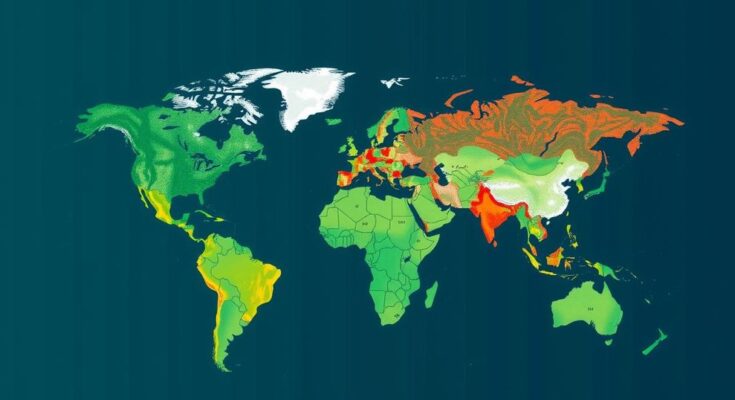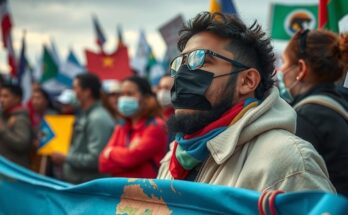Foreign officials at the U.N. climate summit advocate for global “solidarity levies” to fund climate initiatives in developing nations, targeting industries like shipping and aviation. The goal is to create a funding framework that could generate over $100 billion annually, despite ongoing political resistance, particularly from President-elect Donald Trump. Discussions focus on creative funding mechanisms while grappling with the implications for both developed and developing regions.
At the ongoing United Nations climate change summit, foreign officials are rallying for the introduction of global climate taxes, dubbed “solidarity levies,” aimed at supporting green energy initiatives in developing nations in light of President-elect Donald Trump’s anticipated return to office. Officials from various countries, including France, Spain, and Kenya, advocate for a structured approach to implementing these levies targeting industries such as shipping and aviation. The ultimate goal is to devise a framework capable of generating $100 billion annually to bolster climate-related projects in poorer countries.
Discussions on financial assistance for climate initiatives have historically been contentious, particularly with Trump’s previous withdrawal from the Paris climate agreement and his general resistance to financially supporting other nations. This backdrop has led participants at the summit to explore alternative funding sources, with potential levies including those on cryptocurrency, fossil fuel production, and high-wealth individuals. There remains uncertainty, however, over whether the funds raised would directly benefit impoverished nations or assist the shipping sector in meeting its decarbonization obligations, thus complicating the matter further.
Several airline companies are engaged in a global carbon offset program initiated in 2016, although this scheme was not originally designed to generate repurposed revenue. The task force evaluating the solidarity levies is contemplating the enhancement of existing duties on plane tickets, estimating it may yield up to $164 billion annually. Interestingly, studies suggest that prestigious events like U.N. climate summits contribute significantly to greenhouse gas emissions, primarily driven by the travel habits of attendees utilizing private jets.
The discourse surrounding climate change and its financing has gained momentum, particularly in the context of global summits where countries negotiate various initiatives. The concept of solidarity levies aims to establish a financial mechanism whereby wealthier nations and industries contribute to climate actions in poorer regions. The strategy is notably important as countries strive to balance development needs with environmental sustainability, especially amidst skepticism from influential political figures like Donald Trump, who have previously resisted international climate commitments.
The push for solidarity levies at the U.N. climate summit illustrates the urgency in finding sustainable financial solutions for climate initiatives in developing countries. Despite the complexities surrounding funding allocation and political resistance, officials remain committed to exploring diverse revenue channels. These conversations are crucial as global efforts to combat climate change continue, emphasizing the need for collaboration in navigating the intricacies of international climate finance.
Original Source: www.shorenewsnetwork.com




